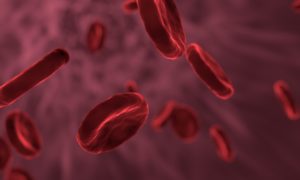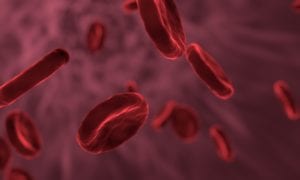Polycythemia Vera (PCV)
What is polycythemia vera (PCV)?
Polycythemia vera (PCV) is a rare, slow-growing blood cancer. This cancer causes the over production of red blood cells within the body’s bone marrow, as well as the over production of white blood cells and platelets. This excess of cells leads to an individual’s blood becoming too thick. PCV can lead to blood clots, heart attack, stroke and abnormal bleeding. Because this disease develops slowly, individuals may have it for many years without symptoms.What are the symptoms of PCV?
Though people may have PCV for years without symptoms, symptoms experienced may include:- Itching, especially after being exposed to warm water
- Headache
- Weakness
- Dizziness
- Painful joints especially in big toe
- Excessive sweating
- Abdominal pain due to enlarged spleen
- Double vision
- Shortness of breath which is worse when laying down
- Abnormal blood cell counts found during lab tests
What causes PCV?
PCV is believed to be caused by a defective gene known as JAK2. This gene is responsible for regulating cell production in the bone marrow. Researchers believe this defect is acquired, or developed, over one’s life and not inherited.Are there treatment options available for PVC?
Symptoms with PVC vary, but treatment has been shown to decrease the occurrence of symptoms, as well as the severity of the disease overall. Doctors will treat depending on what symptoms appear. Treatments options include:- Phlebotomy, which is the removal of an individual’s blood from their veins to decrease blood volume and improve function
- Low dose aspirin to help prevent blood clots and assist with pain
- Antihistamine medications for itching
- Medications to lower blood cell counts
Where can I find more information about PVC?
Polycythemia Vera (PCV) Articles





A New Investigative Treatment Option for Acute Myeloid Leukemia Produces Positive Results
Trudy Horsting
October 29, 2020
Read More »



Virtual Event September 10th for Myeloproliferative Neoplasm International Awareness Day
Trudy Horsting
August 24, 2020
Read More »






